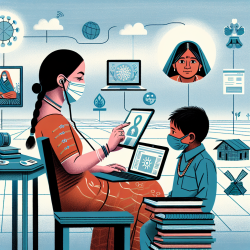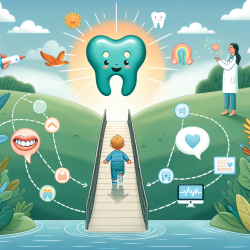Introduction
In the realm of speech-language pathology, understanding the nuances of human behavior and decision-making can significantly enhance therapeutic outcomes. A recent study, "Altruism and the Statistical Value of Human Life for Policy and Regulation," sheds light on how altruistic sentiments influence the valuation of life, particularly in policies affecting children's mortality. This blog explores how these findings can inform and improve practices in speech therapy, especially for children.
The Research at a Glance
The study by Mark C. Long examines the Value of a Statistical Life (VSL) and how it is affected by altruistic sentiments. It reveals that traditional VSL measures, often used in policy-making, may undervalue life by a factor of two to three. This underestimation is particularly significant in policies affecting children, as health altruism tends to dominate over wealth altruism in these cases.
Implications for Speech Therapy
Understanding the concept of VSL and altruism can be pivotal for speech therapists in several ways:
- Prioritizing Interventions: By recognizing the higher VSL associated with children's health, therapists can advocate for more resources and attention to early intervention programs, which have long-term benefits for children's communication skills and overall development.
- Family-Centric Approach: The study highlights the importance of considering family dynamics and altruistic behaviors. Speech therapists can enhance therapy outcomes by involving family members in the therapeutic process, acknowledging their role in the child's development.
- Policy Advocacy: Therapists can use these findings to advocate for policies that prioritize children's health and development, ensuring that speech therapy services are accessible and adequately funded.
Encouraging Further Research
While the study provides valuable insights, it also opens avenues for further research. Speech therapists can contribute to this field by exploring how altruistic behaviors influence therapy outcomes and by developing strategies that harness these behaviors to support children's communication development.
Conclusion
The intersection of altruism and the valuation of life offers profound implications for speech therapy. By integrating these insights into practice, therapists can enhance their effectiveness and contribute to better outcomes for children. To delve deeper into the research, you can read the original paper, Altruism and the Statistical Value of Human Life for Policy and Regulation.










